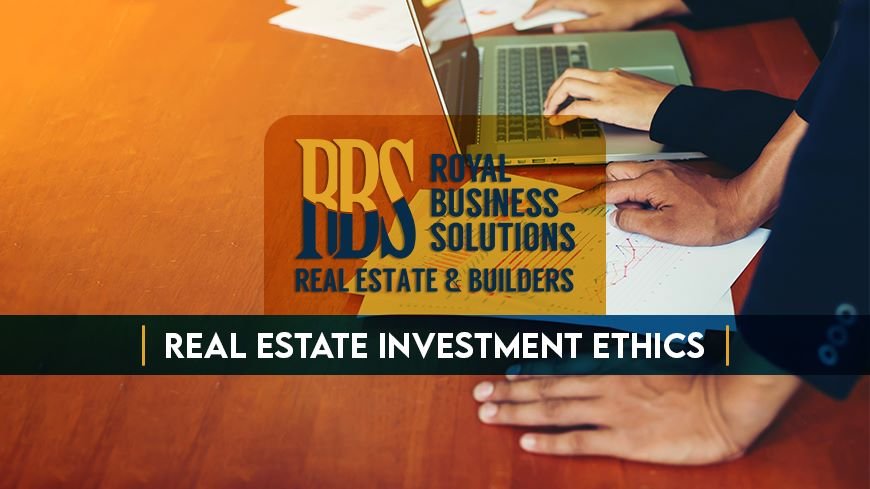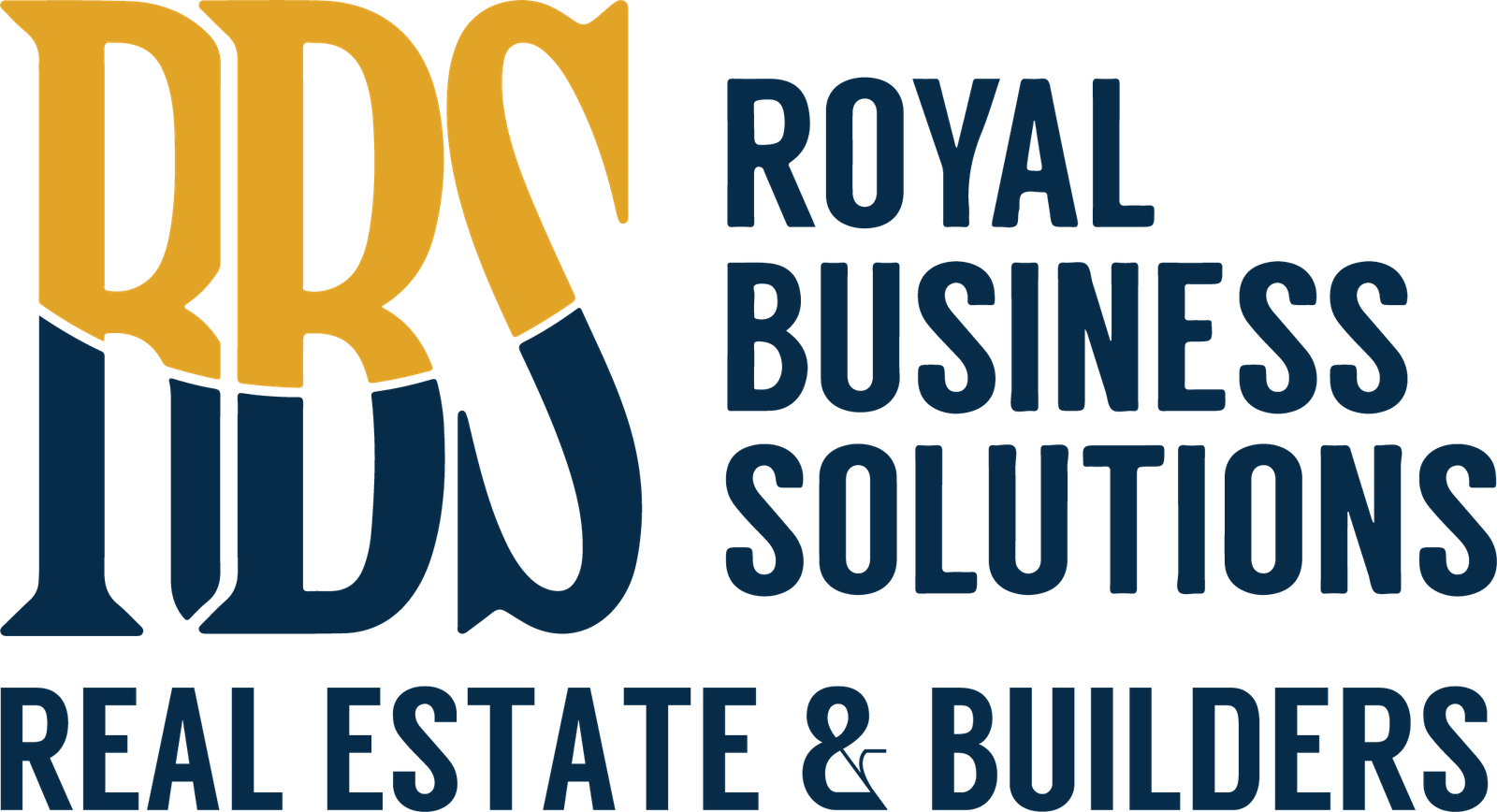- June 22, 2023
- Posted by: Muhammad Shehzad
- Category: Blogs

Introduction to Real Estate Investment Ethics
Real estate investment offers tremendous opportunities for financial growth and stability. However, in this dynamic industry, it is crucial to approach investments with a strong ethical framework. Ethical considerations not only promote long-term success but also contribute to the overall well-being of communities and the industry as a whole. In this comprehensive guide, we will delve into the realm of real estate investment ethics, exploring key principles, ethical challenges, and strategies for making sound and socially responsible investment decisions.
Understanding Real Estate Investment Ethics
1.1 Defining Real Estate Investment Ethics
Real estate investment ethics encompass a set of principles and values that guide investors in making morally and socially responsible decisions. These principles emphasize integrity, fairness, transparency, and accountability throughout the investment process. Integrity entails maintaining high ethical standards, being truthful, and acting in the best interest of all parties involved. Fairness involves treating individuals equitably and without discrimination, ensuring equal opportunities in real estate transactions. Transparency emphasizes the importance of open and honest communication, providing accurate information and disclosing any relevant details. Accountability requires investors to take responsibility for their actions, acknowledging the consequences of their decisions and ensuring compliance with legal and ethical obligations.
1.2 The Importance of Ethical Investing
Ethical investing safeguards reputations and fosters real estate industry growth. Adhering to ethical practices builds strong stakeholder relationships, attracts socially conscious partners, and mitigates legal and regulatory risks. It enhances the industry’s image, fostering trust among investors, tenants, and the public. Ethical investing aligns with broader societal goals, creating positive impacts beyond financial returns.
Key Principles of Real Estate Investment Ethics
2.1 Integrity and Honesty in Real Estate Investment Ethics
Integrity is the cornerstone of ethical investing. Investors should maintain honesty and transparency in their dealings, including accurate representation of property information, fair negotiations, and truthful disclosures to all parties involved. Upholding high ethical standards in communication and transactions establishes a solid foundation for trust and fosters long-term relationships.
Read: Investing in real estate through private equity
2.2 Fairness and Non-Discrimination
Real estate investors must uphold principles of fairness and non-discrimination, treating all individuals equally regardless of their background, race, ethnicity, or socioeconomic status. Discrimination in any form is not only unethical but also illegal. By embracing diversity and inclusivity, investors contribute to a fair and equitable real estate market, fostering a sense of social justice and equal opportunities for all.
2.3 Respect for Stakeholders and Community in Real Estate Investment Ethics
Investors should prioritize building strong relationships with stakeholders, including tenants, neighboring communities, and industry professionals. Respecting the needs and concerns of these stakeholders contributes to a positive and sustainable investment environment. Engaging in open dialogue, considering community impact, and incorporating feedback into investment decisions demonstrate a commitment to responsible and ethical practices.
Ethical real estate investors understand the importance of environmental sustainability. They strive to minimize environmental impact by incorporating eco-friendly practices such as energy-efficient building design, water conservation, and responsible waste management. By prioritizing sustainable development and reducing carbon footprint, investors can create environmentally responsible properties that align with the broader goals of ecological preservation and resource conservation.
2.4 Compliance with Laws and Regulations
Investors must adhere to all applicable laws, regulations, and codes of conduct governing real estate transactions. This includes compliance with fair housing laws, zoning regulations, building codes, and financial reporting requirements. Understanding and respecting legal boundaries not only ensures ethical conduct but also minimizes legal risks and potential conflicts.
Furthermore, if you want a risk free investment, make sure to check out Gulberg Greens Islamabad!
Ethical Challenges in Real Estate Investment
3.1 Predatory Practices and Exploitation affecting Real Estate Investment Ethics
Unethical practices such as predatory lending, price gouging, or taking advantage of vulnerable individuals undermine the integrity of the real estate industry. Investors should be vigilant and avoid engaging in such practices. Instead, they should prioritize fair and transparent transactions, ensuring that all parties involved are treated equitably and ethically.
3.2 Conflict of Interest
Real estate investors may encounter situations where personal interests conflict with their fiduciary duty to act in the best interest of their clients or partners. Identifying and managing conflicts of interest is essential to maintain ethical standards. Investors should disclose any potential conflicts and make decisions that prioritize the best outcome for all stakeholders involved, ensuring transparency and fairness.
3.3 Insider trading and Information Asymmetry affecting Real Estate Investment Ethics
Ethical investors avoid trading on non-public information or manipulating market conditions for personal gain. They strive for transparency and equitable access to information, ensuring a level playing field for all market participants. By sharing information openly and honestly, investors contribute to the integrity and fairness of the real estate market, fostering trust among buyers, sellers, and industry professionals.
Strategies for Ethical Real Estate Investment
4.1 Conduct Thorough Due Diligence
Before making investment decisions, conduct comprehensive due diligence to evaluate the property, its legal status, and potential risks. Thorough research helps uncover any hidden issues and enables informed decision-making. This includes verifying property titles, assessing market conditions, analyzing financial projections, and conducting property inspections. By diligently evaluating investments, investors can mitigate risks and make ethical investment choices.
4.2 Engage in Transparent Communication
Maintain open and honest communication with all parties involved in the investment process. Transparent communication builds trust and fosters long-term relationships based on mutual respect. Clearly communicate the terms of agreements, disclose any material information, and address concerns promptly and honestly. Effective communication allows for informed decision-making and reduces the likelihood of misunderstandings or disputes.
4.3 Seek Professional Guidance
Consulting with ethical real estate professionals, including attorneys, real estate agents, and financial advisors, can provide valuable guidance and ensure compliance with ethical standards. These professionals can offer insights into legal requirements, market trends, and ethical best practices. Their expertise helps investors navigate complex situations, make informed decisions, and uphold ethical standards throughout the investment process.
4.4 Embrace Socially Responsible Investing
Consider incorporating socially responsible investment strategies, such as investing in affordable housing, sustainable developments, or projects that positively impact local communities. Socially responsible investments align financial goals with broader social and environmental objectives. By promoting community development, affordable housing, and environmentally friendly initiatives, investors can create positive change while achieving financial success.
Conclusion
Real estate investment ethics are vital for industry success. Embracing principles, overcoming challenges, and implementing strategies build integrity and attract partners. Ethical decisions shape a real estate industry that delivers financial returns and upholds positive values. Ethical investing fosters a thriving market benefiting individuals, communities, and society.
To further stay informed about the latest developments regarding ‘A Comprehensive Guide to Real Estate Investment Ethics: Building a Strong Foundation for Success’, we encourage you to stay connected with Royal Business Solutions, your trusted source for timely updates and valuable insights.
